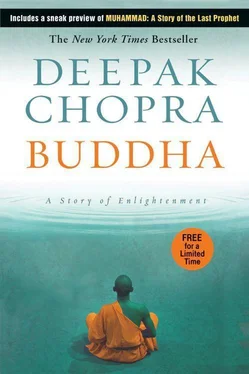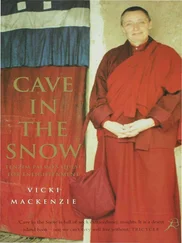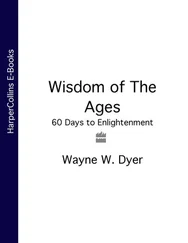The Art of Non-Doing
A Practical Guide to Buddhism
After being inspired by Buddha’s life, the most important thing is not to let him slip through your fingers. This can easily happen. First of all, because he didn’t want anyone to hold on to him. Buddha was like a supernova exploding in the sky, spreading light in all directions. Before the explosion you could locate him in time and space. He was a person like any other, however brilliant and charismatic. But after the explosion known as enlightenment, he turned into something else, something very impersonal. Call it pure spirit, essence, or transcendent wisdom. By any name, he was no longer a person, which makes for special difficulties. How do you follow a teacher who is everywhere at once?
I can imagine sitting down with a reader and being asked that question, which would lead to quite a few more.
How am I supposed to follow someone who constantly insisted that he was no longer a person and didn’t have a self?
Ideally, you follow him by losing your own self. Which seems impossible, since it’s your self that’s fascinated by him. It’s your self that’s suffering and wants to be rid of suffering. The primary message of Buddhism is that this self cannot accomplish anything real. It must find a way to disappear, just as Buddha did.
The self reaches its goal by not being the self? It sounds like a paradox.
Yes, but Buddhists found three ways to live the wisdom their teacher left behind. The first way was social, forming groups of disciples into a Sangha, like the group of monks and nuns that Buddha gathered in his lifetime. The Sangha exists to establish a spiritual lifestyle. People remind themselves of the teaching and keep the Buddhist vision alive. They meditate together and create an atmosphere of peace.
The second way to follow Buddha is ethical, centered on the value of compassion. Buddha was known as The Compassionate One, a being who loved all of humanity without judgment. Buddhist ethics bring the same attitude into everyday life. A Buddhist practices being kind and seeing others without judgment, but in addition displays love and reverence for life itself. Buddhist morality is peaceful, accepting, and joyous.
The third way to follow Buddha is mystical. You take to heart the message of non-self. You do everything possible to break the bonds of attachment that keep you trapped in the illusion that you are a separate self. Here your aim is to tiptoe out of the material world even as your body remains in it. Ordinary people are doing things all day, but in your heart you’ve turned your attention to non-doing, as the Buddhists call it. Non-doing isn’t passivity but a state of openness to all possibilities.
If I practice non-doing, what would I actually do? It still seems like a paradox.
The third way confronts Buddha’s most enigmatic side. How can you shed the separate self when it’s the only thing you’ve known? The process sounds frightening, for one thing, because there’s no guarantee. Once you accomplish “ego death,” as it’s often called, what will be left? You might wind up enlightened, but you also might wind up a blank, a passive non-self with no interests or desires. People find the Buddhist path rigorous because you are asked to re-examine everything you think will get you ahead in life-money, possessions, status, accomplishments-and see them as a source of suffering. For example, having money doesn’t directly cause suffering, but it ties you to the illusion by hiding from sight the fact that there’s another way to live that’s actually real. Money, like possessions and status, creates a treadmill that brings one desire after another.
So enlightenment is the same as having no desires?
You have to understand “no desires” in a positive sense, as fulfillment. At the moment a musician is performing, there’s a state of no-desire because he feels fulfilled. At the moment you’re eating a wonderful meal, hunger is fulfilled. Buddha taught that there is a state, known as Nirvana, where desire is irrelevant. Everything desire is trying to achieve exists in Nirvana already. You don’t have to pursue one desire after another in a futile quest to end suffering. Instead, you go right to the source of Being, which is neither full nor empty. It just is.
Do you still want to live after that?
Nirvana is no longer about life and death, which are opposites. Buddha wanted to free people from all opposites. If you are following his teachings the second way, through morality and ethics, then being good, truthful, nonviolent, and compassionate is important. You don’t want to practice the opposite behavior. But if you follow Buddha the third way, the mystical way of non-doing, duality is the very thing you try to dissolve. You go beyond good and evil, which is scary to many people.
What is the non-self?
It’s who you are when there are no personal attachments. This sounds mystical, but we shouldn’t be distracted by semantics. The non-self is natural; it’s rooted in everyday experience. When you wake up in the morning there’s a moment before your mind gets filled with all the things you have to do today. In that moment you exist without a self. You don’t think about your name or your bank account; you don’t even think about your spouse and children. You just are. Enlightenment extends that state and deepens it. You aren’t burdened by having to remember who you are, ever again.
When I wake up in the morning I remember who I am almost immediately. How does that change?
By gradually shifting your allegiance. Consider how you relate to your body. You mostly forget about it. Heartbeat, metabolism, body temperature, electrolyte balance-literally dozens of processes go on automatically, and your nervous system coordinates them perfectly without interference from the conscious mind. Buddha suggests that you can let go of many things that you’re certain you must control. Instead of devoting so much effort and struggle to thinking, planning, running after pleasure, and avoiding pain, you can surrender and put those functions on automatic, also. This is accomplished gradually by a practice called mindfulness.
You mean, I simply stop thinking?
You stop investing yourself in thinking, because Buddha teaches that you haven’t been in control of your mind anyway. The mind is a series of fleeting, impermanent events, and trying to ground yourself in impermanence is an illusion. Time is exactly the same, a sequence of fleeting events that has no solid basis. Once you hear this teaching, you put it into practice through mindfulness. Whenever you are tempted by the illusion, you remind yourself that it’s not real. In a way, a better term might be re-mindfulness.
The process of shifting your consciousness takes time. This is an evolution, not a revolution. We’re all pulled in by the temptation to choose between A and B. Duality makes us believe that making good decisions and avoiding bad ones is all-important. Buddha disagrees-he says that getting out of duality is all-important, and you’ll never escape as long as you keep burying yourself deeper into the game of “A-or-B?” Reality isn’t A or B. It’s both and it’s neither. Mindfulness keeps you aware of that fact.
How am I to understand “both and neither”?
You can’t, not with the mind. The mind is basically a machine that processes the world only in terms of “I want this” and “I don’t want that.” Buddha taught that you can step outside the machinery and simply watch it working. You witness the whole fantastic jumble of desires, fears, wishes, and memories that is the mind. When you gain practice doing that in meditation, things change. You begin to be aware of yourself in a simpler way, without so much mental jumble. In time your allegiance shifts, and the space between thoughts-the silent gap-dominates instead of thoughts.
Читать дальше












